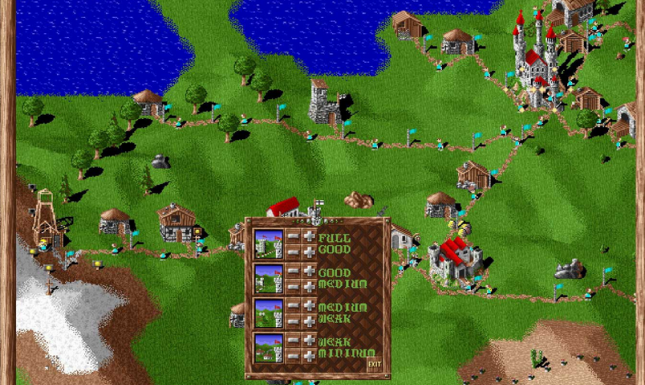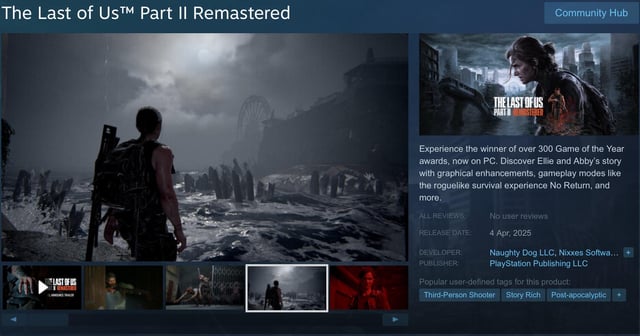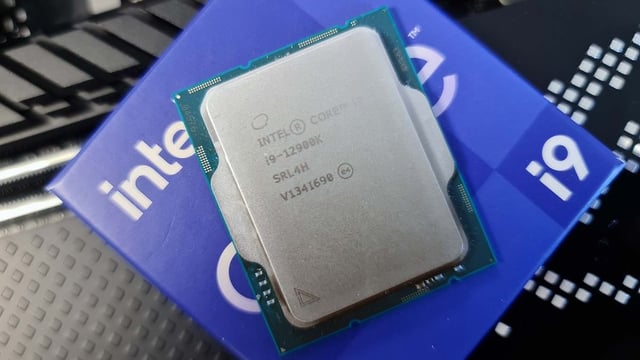Manor Lords and the Denuvo Dilemma: A Necessary Evil or an Avoidable Burden?

Manor Lords, Slavic Magic's ambitious blend of city-building, real-time strategy, and painstaking historical accuracy, burst onto the PC gaming scene in early access to almost universal acclaim. Players were captivated by its intricate economic systems, stunning visuals, and the promise of truly organic medieval settlement development. But the honeymoon period was abruptly interrupted by an announcement that sent ripples of concern throughout the community: the integration of Denuvo Anti-Tamper technology.
The reaction, predictably, was swift and largely negative. Seasoned PC gamers have long memories, and Denuvo's track record is, shall we say, chequered. But is this outrage justified, or is it a knee-jerk reaction to a necessary evil in today's piracy-ridden landscape? Let's delve into the controversy.
The Player Uprising: Performance, Compatibility, and Freedom
The immediate concerns voiced by players across various platforms – the Manor Lords Steam forums, the official Discord server, and comment sections on YouTube channels like Quill18 and GamerZakh – clustered around three key areas: performance degradation, compatibility issues, and limitations on modding.
Performance, understandably, was the primary worry. “My framerate is already dipping below 60 in larger settlements,” lamented user ‘MedievalMayor’ on the Steam forums. “I’m worried Denuvo will make it unplayable.” This sentiment was echoed by many others, citing past experiences with Denuvo implementations that demonstrably impacted frame rates and overall system performance. The fear is palpable: Manor Lords' graphical fidelity is one of its biggest draws, and anything that threatens to diminish that experience is met with fierce resistance.

Compatibility also reared its ugly head. “I’ve heard Denuvo messes with Linux/Steam Deck compatibility - is this true?” asked ‘LinuxLord’ on the Discord server. The Steam Deck, in particular, has become a crucial platform for many PC gamers, and any suggestion that Denuvo might hinder its functionality is a serious concern. The ability to play Manor Lords on the go is a significant selling point, and jeopardizing that would be a misstep.
Finally, the modding community, a vital component of PC gaming, expressed apprehension about potential restrictions. "Will Denuvo prevent us from creating custom scenarios or textures?" questioned 'ModdingMaster' in a YouTube comment on Quill18’s channel. Manor Lords has the potential to be a modding paradise, with players creating everything from historical scenarios to fantastical reskins. Denuvo's presence could stifle this creativity, limiting the game's long-term appeal.

Echoes of the Past: The Tekken 7 Precedent
These concerns are not unfounded. History is littered with examples of Denuvo implementations that negatively impacted PC gaming experiences. Tekken 7's initial release springs to mind, where Denuvo was widely blamed for performance issues. The outcry was so significant that the anti-tamper technology was eventually removed. This pattern – Denuvo's inclusion for the initial sales surge, followed by its eventual removal – has become a familiar, and cynical, observation for many PC gamers.

Slavic Magic's Perspective: Protecting the Kingdom
From Slavic Magic's perspective, the decision to implement Denuvo is understandable, if not universally palatable. Manor Lords' explosive popularity makes it a prime target for piracy. The crucial early access launch window is where a significant portion of sales are generated, and Denuvo could be seen as a necessary measure to protect those initial revenues. As an indie developer, Slavic Magic doesn't have the deep pockets of a AAA studio, and every sale counts.
The question of console release also arises. If Manor Lords had launched simultaneously on consoles, the need for Denuvo might have been less pressing, as console piracy is generally more challenging. However, porting to consoles requires significant resources and expertise, resources that Slavic Magic may not have readily available. Delaying the PC release to coincide with a console launch could have meant missing out on the early access buzz and the crucial funding it provides. A loss in sales could have been devastating.

Are There Alternatives? A Kingdom Without Walls?
But are there alternative solutions to Denuvo? Could Slavic Magic have relied on Steam's built-in anti-piracy measures? Or perhaps focused on building a strong community to discourage piracy through social pressure and the promise of ongoing support? These are certainly viable options, but their effectiveness is debatable.
Steam's DRM provides a basic level of protection, but it's often easily circumvented. A dedicated community can help, but it's unlikely to deter determined pirates. Ultimately, these alternatives may simply be insufficient to protect Manor Lords from widespread piracy during its critical launch period. Many would say the cost to implement Denuvo is far less than the cost of lost revenue that could have been gained during early access.

A Balanced Assessment: Protection vs. Freedom
The Manor Lords Denuvo controversy highlights a fundamental tension in PC gaming: the developer's need to protect their intellectual property versus the players' right to a smooth, unrestricted gaming experience. Slavic Magic's decision is understandable, driven by the realities of game development and the threat of piracy. The players' concerns are equally valid, rooted in past experiences with Denuvo and the potential for negative impacts on performance, compatibility, and modding.
Ultimately, the success of Manor Lords will depend on Slavic Magic's ability to balance these competing interests. Transparent communication with the community, ongoing performance monitoring, and a willingness to address any issues that arise from the Denuvo implementation will be crucial. Perhaps, like Tekken 7 and others before it, Denuvo's tenure in Manor Lords will be temporary, serving its purpose during the initial sales period before being quietly removed.

So, is Denuvo a necessary evil in today's PC gaming landscape, or an avoidable burden? The answer, as with most things, is complex and nuanced. It’s a question that continues to plague the industry, and one that doesn’t appear to have an easy answer. We can only hope that developers and players can find a way to coexist, ensuring both the protection of creative works and the enjoyment of gaming experiences.